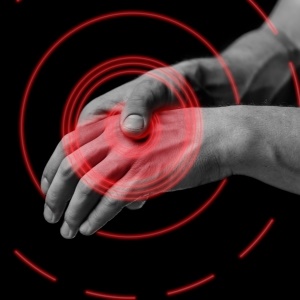
According to the Arthritis Foundation, there are more than 100 different forms of arthritis.
Reducing pain and inflammation
Osteoarthritis is by far the most common, and of the estimated 50 million people in the US who have arthritis, around 27 million suffer from osteoarthritis.
Other common forms of arthritis are rheumatoid arthritis, psoriatic arthritis, fibromyalgia and gout.
Until recently arthritis was regarded as something you were more or less stuck with once you got it, and, according to allopathic medicine, apart from joint replacements, the best you could do was reduce joint pain and inflammation and make yourself more comfortable.
So, unless you believe in the power of positive thinking or some kind of miracle cure, once you’ve got osteoarthritis, you’re stuck with it . . . Or are you?
What arthritis does to your joints
Osteoarthritis is often referred to as “wear and tear” arthritis and affects a large part of the population. It happens as people grow older, but can also be caused by overweight/obesity or joint injuries.
Read: Diagnosing osteoarthritis
Weight-bearing joints like the hips, feet, spine and knees are the areas most affected by osteoarthritis.
According to the American National Institutes of Health (NIH) osteoarthritis mostly affects cartilage. Cartilage is the slippery tissue that covers the ends of bones in a joint, allowing bones to glide over each other.
In osteoarthritis, the top layer of cartilage wears away, which causes bones under the cartilage to rub together.
This rubbing motion can cause symptoms like pain, swelling, tenderness, stiffness, loss of flexibility, “grating” and bone spurs.
Repairing damaged cartilage
Because osteoarthritis starts with the erosion of cartilage, it makes sense that successfully repairing damaged cartilage will prevent further degeneration of the joint and, ideally, completely reverse the disease.
The idea that ingested collagen may help repair the cartilage in joints has been around for years, and many people take collagen supplements, mainly to improve skin and nails.
Read: Hang on to your youth
Examples of collagen rich foods are the skins of chicken and fish, shark fins and gelatin. It is, however, unlikely that ingested collagen can survive the digestive process, and there are no satisfactory studies that prove any beneficial effect on arthritis.
Stem cells to the rescue
A study released on 3 August 2015 in STEM CELLS Translational Medicine indicates that stem cells can be used to grow new cartilage to replace cartilage damaged by injury or osteoarthritis. This is good news especially for the growing number of people needing hip and knee replacements each year.
Read: Rejuvenating stem cells
This new development aims to regenerate cartilage, enabling the joint to work as well as before, but without the complications of replacement joints.
Mesenchymal stem cells (multipotent stromal cells that can differentiate into a variety of cell types, including cartilage cells) show great promise for cartilage regrowth because they are free from inflammation and the chance of rejection by the immune system.
The team, led by Chul-Won Ha, M.D., Ph.D., Professor at Samsung Medical Centre, SungKyunKwan University in Seoul, Korea, conducted their study on pigs because of their similarity to humans.
Human trial on the cards
Dr Ha noted that the stem cell transplantation resulted in superior cartilage regeneration, regardless of the species. He added: "These consistent results in animals may be a stepping stone to a human clinical trial in the future."
Read more:
Cartilage gives early warning of arthritis
Common knee surgery may lead to osteoarthritis and loss of cartilage
References:
Arthritis Foundation: http://www.arthritis.org/living-with-arthritis/pain-management/understanding/types-of-pain.php
NIH (2014): http://www.niams.nih.gov/Health_Info/Rheumatic_Disease/default.asp#ra_3
Science-Based Medicine (2011): https://www.sciencebasedmedicine.org/collagen-an-implausible-supplement-for-joint-pain/Stem Cells Translational Medicine (2015): http://stemcellstm.alphamedpress.org/search?fulltext=cartilage&submit=yes&x=14&y=9
Stem Cells Portal (2015): http://www.stemcellsportal.com/cartilage-regeneration-stem-cells-could-lead-ultimate-knee-and-hip-replacements




 Publications
Publications
 Partners
Partners











